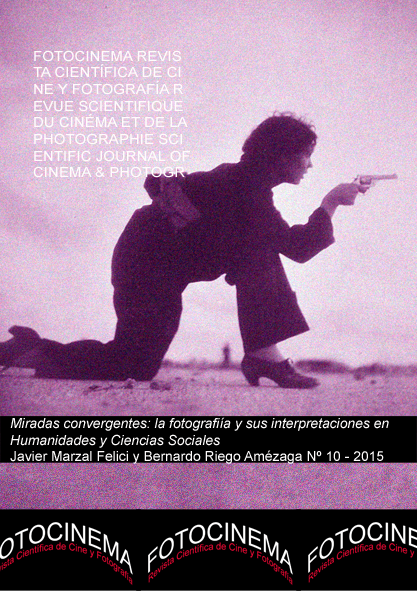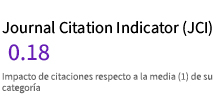Gerda Taro y los orígenes del fotoperiodismo moderno en la Guerra Civil española
DOI:
https://doi.org/10.24310/Fotocinema.2015.v0i10.5982Abstract
Resumen:El hallazgo en México durante el año 2007 de más de 4.000 negativos inéditos de la Guerra Civil Española pertenecientes a Robert Capa (Endre Ernö Friedmann), David Seymour (David Szymin, “Chim”) y Gerda Taro (Gerda Pohorylle) ha puesto definitivamente en valor el trabajo de esta última, la primera fotoperiodista fallecida en el frente de acción por documentar desde primera línea la guerra de España. El presente trabajo revisa el momento fotográfico de la Guerra Civil Española a partir del trabajo de Gerda Taro a razón del valor y significación de sus fotografías. Para ello, se han estudiado 716 originales de la fotógrafa en diferentes soportes (película negativa de 35 mm y 6x6 cm, copias por contacto, copias de época y modernas), y se han analizado pormenorizadamente algunas de estas fotografías mediante un método que ha permitido obtener conclusiones definitivas sobre el conjunto de su obra. Los resultados apuntan a que la práctica fotográfica de Gerda Taro en la guerra de España contribuyó a la redefinición del concepto de fotoperiodismo en occidente.
Abstract:
The discovery in Mexico in 2007 of more than 4,000 unpublished negatives from the Spanish Civil War, owned by Robert Capa (Endre Ernö Friedmann), David Seymour (David Szymin, “Chim”) and Gerda Taro (Gerda Pohorylle) has in particular shown the importance of the latters body of work. Taro is considered to be the first photographer to die during a war, whilst working on the front line of the Spanish Civil War. This paper reviews Taro’s photographs that capture this important moment in time, in Taro’s own, unique photojournalistic style. To do this, 716 original photographs were studied across different media, (35 mm negative films, 6x6 cm contact prints and enlargements), some of which have been thoroughly analyzed by a method that has led to precise conclusions about the body of work. The results show that Gerda Taro’s work during the Spanish Civil War contributed to the redefinition of the concept of photojournalism in the West.
Palabras clave:
Gerda Taro; Robert Capa; Fotoperiodismo; Vanguardias Históricas; Guerra Civil Española; Análisis fotográfico.
Keywords:
Gerda Taro; Robert Capa; Photojournalism; Historical Vanguards, Spanish Civil War, Analysis photographic.Downloads
Metrics
Publication Facts
Reviewer profiles N/A
Author statements
Indexed in
-
—
- Academic society
- N/A
- Publisher
- Universidad de Málaga
Downloads
Published
How to Cite
Issue
Section
License
All contents published in Fotocinema Revista científica de cine y fotografía are protected under the Creative Commons Attribution-NonCommercial-ShareAlike 4.0 International (CC BY-NC-SA 4.0) license. All about this license is available in the following link: <http://creativecommons.org/licenses/by-nc-sa/4.0>
Users can copy, use, redistribute, share and exhibit publicly as long as:
- The original source and authorship of the material are cited (Journal, Publisher and URL of the work).
- It is not used for comercial purposes.
- The existence of the license and its especifications are mentioned.
There are two sets of authors’ rights: moral and property rights. Moral rights are perpetual prerogatives, unrenounceable, not-transferable, unalienable, imprescriptible and inembargable. According to authors’ rights legislation, Fotocinema. Revista científica de cine y fotografía recognizes and respects authors moral rights, as well as the ownership of property rights, which will be transferred to University of Malaga in open access. The property rights are referred to the benefits that are gained by the use or the dissemination of works. Fotocinema. Revista científica de cine y fotografía is published in an open access form and it is exclusively licenced by any means for doing or authorising distribution, dissemination, reproduction, , adaptation, translation or arrangement of works.
Authors are responsable for obtaining the necessary permission to use copyrighted images.














13.png)



